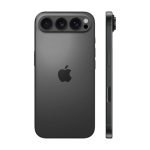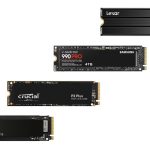- Bike lights keep you visible in low-light conditions, alerting oncoming traffic or anyone else on the road.
- The best should be easy to take off and put on and have a battery capable of lasting for hours of riding.
- Our top pick, the Cygolite Streak 450 Hotshot SL, comes with a headlight and taillight and has several light modes.
Being safe while riding your bike requires more than just putting on a helmet and riding within your means – you’ll also want to guarantee you’re highly visible to those around you with a quality set of bike lights. Even if you don’t plan on riding at dusk or when it’s completely dark, bike lights are one of the most important cycling accessories to have and it’s better to have them and not use them to not have them at all.
According to a study by the National Highway Traffic Safety Administration (NHTSA), “the time period with the largest frequency of pedalcyclist fatalities overall is 6 pm to 8:59 pm (21%), followed by 9 pm to 11:59 pm (17%).” Although the study was conducted year-round, and it may not have always been entirely dark around 6 pm, those numbers do paint a stark picture. The fact most of those time frames take place in low or no lighting suggests visibility was one of the main factors.
As a resident of New York City, and with my go-to mode of transportation being my bike, there aren’t many days during the spring and summer that I don’t spend at least a little bit of time pedaling around my neighborhood. I ride during all hours of the day, too, be it commuting to work or getting in a ride on the weekends, and I find myself biking in low or no light conditions often.
But just as I’d never leave my apartment without a helmet, I always make sure to pack along a set of bike lights – no matter how long I plan on being out. It doesn’t take an in-depth study to know that bike lights are an indispensable part of any cycling kit and something that can very well save your life.
Throughout my years of cycling, I’ve learned firsthand the immense value of a quality set of bike lights (and how dangerous a poor set can be). I’ve also come across my fair share of bike light variety; there are some designed to be highly portable and easy to install, while others are intended for trail riding.
Below, I’ve rounded up seven of my favorites from brands like Malker, NiteRider, and MPowerd. I’ve also included some tips on how to show for a bike light, as well as insight into the testing methodology I used in deciding which lights ultimately made the cut.
Here are the best bike lights:
- Best overall: Cygolite Streak 450 Hotshot SL
- Best on a budget: Malker Silicone LED Bike Lights
- Best easy-install: TeamObsidian Bike Light Set
- Best for trail riding: NiteRider Pro 1800 Race Light
- Best solar-powered: MPowerd Luci Solar Bike Light Set
- Best rear light: Lezyne Femto Tail Light
- Best waterproof: Light and Motion Urban 500 Headlight
Amazon; Alyssa Powell/Insider
Each of the bike lights featured in this guide went through a series of tests to determine how well they compared across these four categories: Brightness, ease of use, versatility, and value. Here’s how each category specifically factored into deciding which lights made this guide:
Brightness: Judging a bike light’s brightness isn’t just about its lumen output or its actual brightness, but more so the quality of the light and what kind of settings it offers. As mentioned in the section on how to shop for a bike light, quality bike lights can vary in lumen output between 200 to 1,000 lumens, though this depends on where you plan on riding. To test for this, we looked at how effective the light was at making us visible without blinding oncoming traffic, while also providing some illumination of our surroundings.
Ease of use: A bike light that’s hard to install, or even difficult to turn on and switch between its light settings, isn’t one that’s going to be particularly thrilling to use over and over again. If the light is easy to use, you’ll be more inclined to use it. Plain and simple. It’s also preferred that a light doesn’t require much toggling while you’re riding (or, at the very least, is easy to use).
Versatility: Being able to use a single set of bike lights on multiple bikes isn’t exactly a dealbreaker but it is nice to have that flexibility if need be. Additionally, a light that offers multiple brightness settings or a variety of light modes makes it far more valuable than just a standard, single beam light.
Value: A bike light’s value isn’t just what its sticker price says but more so a combination of the three categories above, and how that compares to what it costs. There are plenty of valuable lights in the $15-$40 range, capable of fitting a range of budgets without sacrificing much quality.
The best bike light overall
Cygolite
For a reasonable price, the Cygolite Streak 450 Hotshot SL Bike Light Combo Set includes a bright headlight and taillight to make your early morning or late night commutes safer.
Pros: Incredibly bright, long battery life, easy to mount, several useful lighting modes
Cons: Uses Mini USB (rather than the more common Micro USB)
The Cygolite Streak 450 Hotshot SL Bike Light Combo Set comes with the Streak 450 Lumen headlight, which lasts for up to 100 hours on a single charge, and the Hotshot SL 50 Lumen taillight, which lasts for 200 hours on a single charge.
The lights charge using a Mini USB cord that you can plug into your computer or a cube. Since many electronics these days rely on Micro USB (not mini), you may want to keep a Mini USB cord with you on your rides so you aren’t stranded with dead lights. Or, if you see the low battery indicator turn on, be sure to charge the light before you go out.
The headlight has seven lighting modes: boost, high, medium, low, steady pulse, walking, and daylighting, which consists of powerful flashes that make you stand out in broad daylight. The taillight also has a lightning mode as well as five other modes of varying flash tempo and brightness. — James Brains, home & kitchen reporter
The best easy install bike light
TeamObsidian
If you’re looking for a light that’s just as easy to install as it is to take off your bike, consider picking up the surprisingly well-built and bright TeamObsidian Bike Light Set.
Pros: Affordable, adjustable beam width, lifetime guarantee
Cons: Doesn’t come with batteries, not designed for trail riding
One of the benefits you sacrifice with the low cost of the TeamObsidian Bike Light Set is usability out of the box. Batteries aren’t included. Despite having to buy five AAA batteries (I recommend getting rechargeable versions), there’s a lot to like about this set.
The headlamp produces 200 lumens of light. Both lights have three lighting modes — high, dimmed, and flashing — and are designed to withstand water, snow, heat, and dust. Installation is effortless and tool-free. And, the lights have quick-release mounts so you can take them with you and avoid potential thefts.
TeamObsidian stands behind the quality of its bike lights by offering a “100% no-hassle lifetime guarantee.” The company specifically states that it will refund your money if you’re dissatisfied for any reason. And, if the lights break, it will send you new ones. — James Brains, home & kitchen reporter
The best budget bike light
Amazon
Malker’s bike lights are a great budget buy for anyone looking for a set of easy-to-install front and taillights — they even have a variety of light settings which add to their versatility.
Pros: Easy to strap onto a bike’s handlebars and seatpost, comes with front and rear lights, has multiple light settings including a strobe function
Cons: Light modes can be hard to toggle, not robust enough for all riding conditions
These LED lights from Malker have been a go-to of mine for several years, as they’re extremely easy to put on and take off and incredibly cost-effective — I often see them on sale for under $10. The fact they come as a set of four (two standard, front-facing lights, and two red, rear-facing lights) only adds to their utility.
Aside from their price and ease of use, what I like about these lights from Malker is how lightweight they are. I’m able to stash them in my backpack before I head out for a ride, but can also just leave them attached to my bike and they don’t take up too much space or get in the way of anything while I bike.
If I lock my bike up, their strap-on style makes it easy to just unhook them and put them back in my bag (or even a pant pocket), though it is worth noting to make sure the lights are completely off when stashing them. Several times I thought I’ve turned them off, only to find them still on but on a different light setting next time I go to use them (or the battery would just be completely sapped).
The best bike light for trail riding
NiteRider
If you prefer to take your mountain bike off-road at night and you have a little extra to spend, consider the NiteRider Pro 1800 Race Light.
Pros: 1800 lumens output, long distance beam that maintains uniformity, excellent for trail riding at night
Cons: Expensive, hard to remove
What sets the NiteRider Pro 1800 Race Light apart from the other lights in our guide is that it gets brighter than your average car headlight. There are five modes: high, medium, low, walk, and flash.
The light is designed to stand up to the elements with Dupont fiberglass reinforced nylon housings and a borosilicate glass lens, which is resistant to extreme temperature changes. The eight-step power gauge tells you how much battery power is left, and you can easily swap out batteries so you aren’t left in the dark while you wait for your light to charge.
The best solar-powered bike light
MPowerd
MPowerd’s Luci Solar Bike Light is a convenient, versatile light that runs for upwards of 15 hours on a single charge and is easy to install almost anywhere on a bike’s frame.
Pros: Recharges via solar power, close to around 15 hours of use on a single charge, easy to attach all over a bike, lightweight, offers four different light modes, comes with a rear light
Cons: Full solar recharge takes close to 8 hours
It’s easy to see the versatility of MPowerd’s Luci Solar Bike Light; not only does it deliver more than enough capacity for even the longest of day rides but its ability to recharge while I ride is a wonderful perk. Add in the fact that this kit also comes with a solar-powered taillight, and this bike light package is quite intriguing.
Both lights are easy to attach via an adjustable silicone strap that works well on just about any part of a bike’s frame. The straps keep them snug, too, as I never felt as though the light would fall off, even if I was riding off-road or on a particularly bumpy street. I did think that the light’s magnetic clasp into the solar charger would come apart, but it stayed secure the entire time.
Output-wise, the front light delivers 100 lumens while the taillight provides 40 lumens. Each has multiple light modes including a flashing option or different brightness levels, and a built-in battery level indicator lets you know when it’s time to recharge it. The lights also have a Micro-USB slot, so they aren’t only dependent on solar power for juice.
Its $65 price tag is on the higher end for bike lights, but I do feel as though its versatility as solar-powered light makes it worth the investment — this is something that’s designed to last for several years while also being able to save you heaps of money on replacement batteries.
The best rear bike light
Amazon
The Femto Tail Light from Lezyne is a lightweight, easy-to-use tail light that helps dramatically improve nighttime visibility, both behind your bike and on the sides.
Pros: USB rechargeable, easy to install, lightweight enough to pack in a backpack when not in use, 270 degrees of visibility
Cons: Strap isn’t very durable
Front bike lights are important, of course, but it can be just as vital to have something on the back of your bike to improve your visibility, as well. The Femto from Lezyne is one of the best I’ve used, as it’s light weight enough to not take up much space in my backpack when not in use and easy to install when it starts to get dark out (I can even pop it on without having to fully get off my bike).
Although tail lights may seem like a dime a dozen (there are plenty available via Amazon), this one from Lezyne nabs this spot thanks to its wide range of visibility (270 degrees) and decent price point (I often find it for under $20). Tack on its easy-to-use mounting strap that lets you attach it almost anywhere, and you have a highly versatile rear bike light that can be used on everything from commuters and road bikes to mountain bikes and cruisers.
It’s also USB chargeable which I found to be quite useful as I could just plug these in after a few sessions of riding with them instead of looking around my apartment for or buying batteries.
The best waterproof bike light
Light and Motion
The Light and Motion Urban 500 Headlight keeps you visible from the front and sides with its powerful headlight and helpful sidelights.
Pros: Has sidelights, 500 lumens, lightweight and compact, easy to remove, two-year warranty
Cons: USB port cover falls off easily
When mounted just right, the Light and Motion Urban 500 Headlight has two amber safety sidelights that make you visible to drivers on your sides. There are four light modes: high (500 lumens), medium, low, and pulse.
On high, the battery lasts for about 90 minutes, and on pulse, it lasts for up to 12 hours. The light mounts right onto your handlebars and has a quick release feature so you can take your light with you. It charges using a Micro USB charging cable. And, Light and Motion backs the quality of this product with a two-year warranty.
How to shop for a bike lights
When choosing a bike light, look at the number of lumens it’s capable of producing, as this tells you how bright the light is. Many models give you this number right in their name and, based on our testing, the advertised lumens rating is accurate for the best units, though the brightness may dwindle as the battery loses juice.
For headlights, the number of lumens you need depends on where you’ll be cycling. For riding trails at night, you need at least 1,000 lumens. For urban roads where there are streetlights, 200 lumens will do. And, taillights should produce between 40 and 100 lumens of output since they are mainly there so others can see you.
Do be careful not to use extremely bright flashing headlights while cycling, too. This can disorient drivers and make it harder for them to see you.
Also, anything above 300 lumens could potentially blind oncoming traffic. So, consider dropping down to a dimmer setting when cars are coming — much like you might use the high beams on your car. If you’re concerned about drivers seeing you from behind, consider installing two rear lights: One that flashes and one that remains steady.
Powered by WPeMatico






